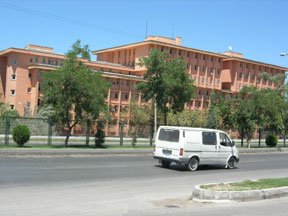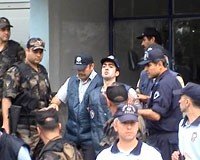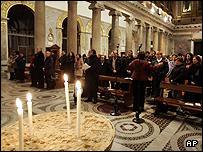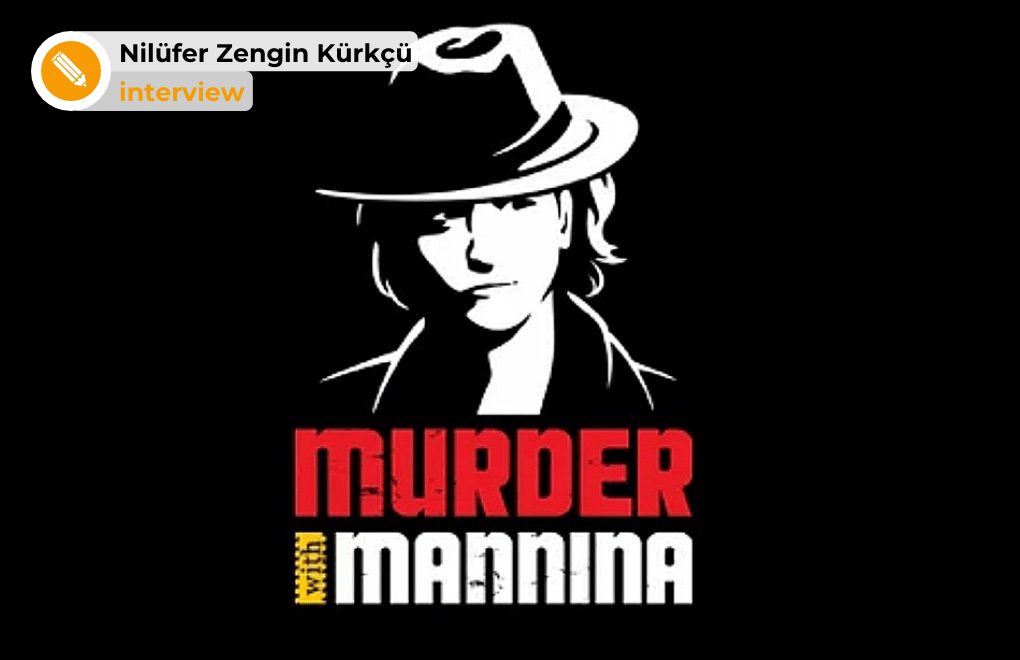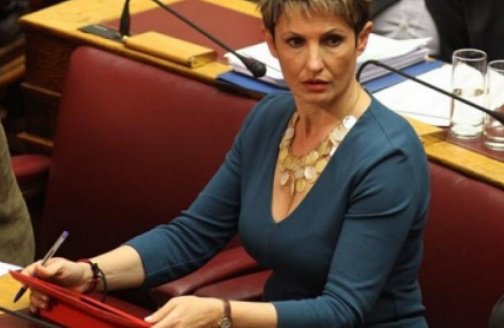The court case dealing with the murders of Tilman Ekkehart Geske, Necati Aydin and Ugur Yüksel, three employees of the Zirve Publications in Malatya, has been postponed until 14 January. The three men had been attacked in their office in Malatya, the southeast of Turkey, in April this year, and their throats had been cut.
The case was attended by joint attorneys, as well as one German and four Turkish reporters and a reporter for the Christian Compass Direct News agency. Also present were two widows of victims, Susanne Geske and Semse Aydin, six defense lawyers, and the father of one of the accused. The US Embassy's representative of the Political Issues Office, Jeffrey Collins, as well as the EU Turkey Commission Political Advisor Sema Kilicer also attended the hearing.
Widows: Fear, Solidarity and Trust in Justice
Semse Aydin said, "I cannot console my children. They ask me whether they will also be killed for being Christian. I don't want the five young men to be punished, but the mentality behind them, I take shelter in justice."
Susan Geske said, "As a Christian, I see this country as my own country. I have built my whole life here. After my husband was killed, all my neighbours, including the covered ones, and the Imam visited me. Turkey is a laicist country. I believe that the judiciary will make the right decision."
Joint attorneys: Genocide crime or hate crime
Joint attorney Ergin Cinmen described the attack as a "genocide crime", basing his argument on Article 76 of the Turkish Penal Code, which deals with the crime of genocide based on the definition of the United Nations Convention against Discrimination. According to this legal framework, not only attacks based on racial grounds, but also on religious grounds, are defined as genocide crimes. Cinmen added, "This society has to be tolerant and accept all kinds of beliefs. A modern and democratic society works only in that way."
Another joint attorney, Erdal Dogan, said that this was not the first attack of its kind. Starting with the murder of priest Andrea Santoro in Trabzon last year, there have been attacks which have shown the intolerance towards other beliefs.
Dogan pointed to the links which Yasin Hayal, suspect in the murder of Turkish-Armenian journalist Hrant Dink, had with the "Alperen Hearth", a religious-nationalist organisation.
Joint attorney Ali Öz described the murders as a "hate crime". He argued that because the crime was being considered as a political crime, justice would not be achieved.
His colleague Orhan Kemal Cengiz added that the murders were not "an attack by a few young men who had been wound up", but a "hate crime".
Cengiz repeated the accusation that the indictment was evasive and that most of the files were concerned with "missionary activities" and aimed at targeting other Protestants and missionaries.
Defense not ready
The court said that it would evaluate the joint attorney's demands to question the defendants in relation to the possibility of a genocide or hate crime at a later stage.
The defense lawyers refused to speak, as they said they had had not had enough time to prepare for the trial.
The Malatya 2nd Heavy Penal Court decided to postpone the trial until 14 January. The detention of the defendants will be reviewed on 18 December.
Biased reporting
The Ihlas News Agency prepared for the trial by targeting the joint attorneys.
Starting three days before the trial, the news items moved the limelight away from the fact that three men were tortured and killed by seven others with the justification that they were missionaries.
Rather, the attention was drawn to the joint attorneys.
On 20 November, an article read, "It has emerged that among the lawyers there are some who have defended militants of the PKK terrorist organisation before." It also said, "Orhan Kemal Cengiz also looked after a trial against Necati Aydin, killed at the Zirve Publishing House, for selling bibles by force in Izmir."
Murder suspect E.G.'s "theories" given broad coverage
The news item also gives prominence to a part of the statement by murder suspect E.G. who said: "We started talking about Christianity. We asked questions, and they started to answer. Necati spoke ill of Islam. He said that Christianity and the bible were good and praised the PKK. I became angry at what he said." In another part of the news item, E.G.'s statement that Necati Aydin praised the PKK on another occasion is given credence.
After such preparation, the article then announces that lawyer Orhan Kemal Cengiz, advisor to the Union of Turkish Protestant Churches and 27 lawyers would attend the trial.
On 21 November, the news agency announced under the heading "Lawyer and media army is coming" that Cengiz had come to Malatya before the tiral in order to reserve 27 rooms at a hotel, and that this showed "the importance attached to the trial and the possibility that there was a desire to influence the court."
The IHA news agency, which supplies the news for the Malatya press, further said:
"The fact that there are lawyers from the Diyarbakir Bar Assocation among the lawyer's army which is going to come to Malatya and join the hearing on the Zirve Publishing murders, among them also the lawyer of PKK terrorist organisation leader Abdullah Öcalan, is being interpreted as a planned and programmed attempt at manufacturing public opinion."
Lawyers and previous cases listed
The news agency took care to list the names of all the lawyers joining the hearing, together with the names of those whom they had defended before.
There is thus a dangerous shift of focus from the presumed perpetrators of a crime to conspiracy theories linking Christian missionaries and PKK activities. (TK/NZ/AG)






